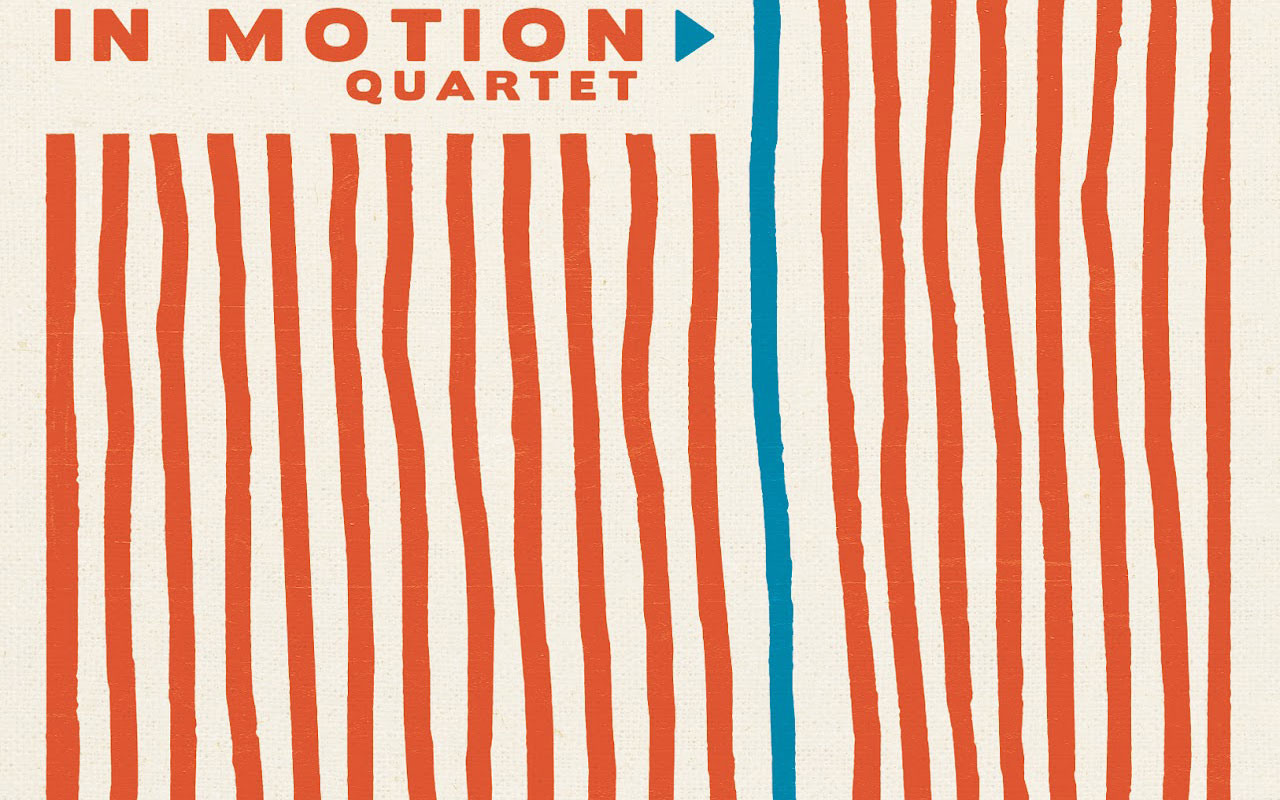
SpooM Music, January 2025
For an album that takes its name from “the struggle of our day-to-day lives,” In Motion Quartet’s debut offering, The Grind, is a darn interesting record, a rangy opus filled with collective improvisation and unlikely melodies. The band is a Seattle-Bellingham connection led by saxophonist Steve Treseler and trumpeter Kevin Woods, experienced players and teachers who’ve recruited a rousing rhythm section of bassist King Dahl and drummer Jerry Steinhilber, both of whom now live in Bellingham.
Treseler and Woods are the primary writers here, but The Grind’s aesthetic palette begins with Dahl and Steinhilber, longtime comrades dating back to the early ‘80s Berklee School of Music. Their playing is at once rhythmically-forward and dramatically syncopated, often changing sensibilities within solo sections. On Treseler’s “Magic Mode,” the album’s second track, Dahl and Steinhilber lay a free-sounding sonic quilt, dropping in and out as the melody takes up its tremulous pulse. On the hammy “Climb/Fall,” Dahl pivots between a slow ascending motif and a full-on fretboard sprint, defining the tune’s timbre and focus with incongruous alternating sections.
These staggered rhythms are a microcosm of the entire album, for The Grind is nothing if not a study in contrast. With only four instruments, the quartet veers expertly between silence and cacophony, a sonic effect amplified by Treseler’s and Wood’s mirrored playing. Their album press release calls this, “interactive collective improvisation,” or “improvised counterpoint.” Accomplished over occasionally rampaging rhythms, the sounds emulate some of Charles Mingus’s groups, saxophone blaring in one direction, trumpet in the other. These melodic collisions can sound like a big band somehow in quartet form.
After a couple of heady Treseler tunes – not quite straight ahead, not quite free – and Steinhilber’s lone songwriting contribution, the rollicking “Blue Note Maki,” The Grind reaches an experimental inflection in “Ballade #2,” the first of five Woods compositions on the record. Almost “Saeta”-like in its delivery – with cymbal and tom work in place of marching drums – the song is a delightful ode to sparseness. It kicks off a series of more exploratory numbers.
Treseler takes up the bass clarinet for the title track, “Forward Motion (a.k.a. The Grind).” Based on the composition’s melody, Woods might not see much forward momentum in “the grind” these days. Ponderous is a word that comes to mind – this seems accurate for folks measuring progress in creative metrics. (Art is, or can be, hard.)
Treseler’s final tune is the vamp-heavy, midtempo “Western Oracle,” after which Woods comes in swinging with “Little Boo,” which sounds as if a New Orleans brass group has swallowed some Monk juice. The aptly titled “Goodbyes” hinges on Dahl’s plodding bass, with a melody nearly as slanted as Joe Henderson’s “Isotope.” These players have all been around the block, but The Grind sheds fresh light on their musical unorthodoxies. Here’s hoping there’s more where this came from.